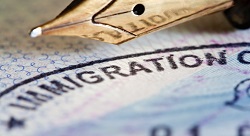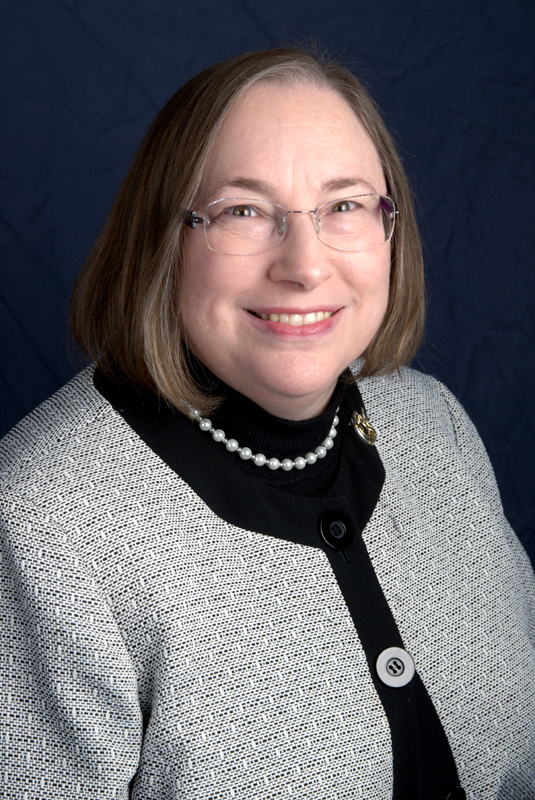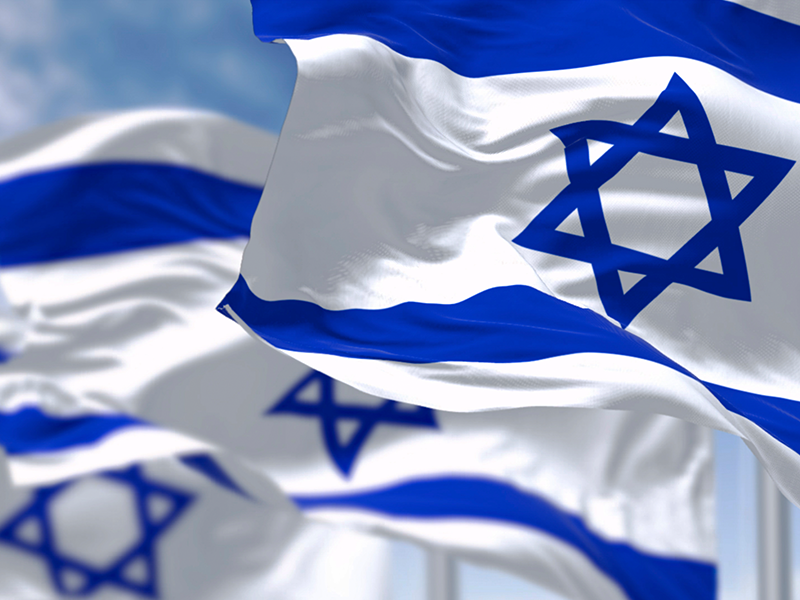"Resident Foreigners" and the Wisdom of the Oxymoron


I am an American citizen living in Vancouver, British Columbia, and serving a Canadian Reform congregation for the past six years. This juxtaposition of two increasingly disparate identities has given me a unique perspective on this week’s parashah, Chayei Sarah, and its introduction of the term ger v'toshav, “resident foreigner.”
In Chayei Sarah, we read the rather peculiar line: Ger v’toshav anochi imachem ..., “I am a resident foreigner living for a time among you; sell me a gravesite among you, that I may bury my dead here” (Gen 23:4). This is what Abraham says as he petitions the owner of a field for the right to purchase land for the gravesite for his wife Sarah.
To both the student of Torah and the student of the English language this phrase ger v’toshav, resident foreigner, piques interest and draws attention. It is an example of one of those delightful and often poignant turns of a phrase in any language, an oxymoron: the bringing together of two seemingly incompatible and opposite terms, like “sweet sorrow,” “recorded live,” “act naturally,” “good grief,” “passive aggressive,” and, though not kosher, but still illustrative, “jumbo shrimp.” I have always enjoyed how this literary device can be used to construct biting commentary on the incongruity of frequently paired things.
That commentary can have a powerful effect, causing a moment of silence to hover over a room as we contemplate the phrase’s meaning. We recognize this when we dwell on the underlining message of ger v’toshav, resident foreigner. The oxymoron challenges us to see compatibility — even harmony — in seemingly incompatible things.
So, what is a ger v’toshav, a resident foreigner? In our Torah portion, and in Jewish legal texts that have followed, a ger v’toshav, was an individual of special status in the community, one who lived permanently among the citizens of a place but did not have the status of a citizen. A ger toshav enjoyed all the protections a society offered its citizens but was exempt by virtue of his (it was not gender inclusive back then) special status from many of the requirements of citizenship. A ger toshav was a protected visitor and honored guest in a society. Central to this was the public obligation for the health and welfare of a ger toshav. This was the sacred responsibility of each citizen in that society and of the society as a whole.
Jewish law is emphatic about our responsibility to the stranger who lives within our midst. Thirty-six times in Torah, we are commanded to “love the stranger.” Every year at Passover, this theme serves as the narrative thread of the seder. At the very center of the Torah, in the Holiness Code, we read, “The strangers who reside with you shall be to you as your citizens; you shall love each one as yourself, for you were strangers in the land of Egypt” (Lev. 19:34).
In this week’s parashah, Abraham, the emissary of Judaism to the world, the individual whose merit and relationship with God, above all others, is the reason we were given the Torah, is presented not as a powerful, wealthy businessman or as a man who regularly talks with God. Instead, he is presented as a helpless stranger in a land that he now calls home seeking aid and assistance from its citizenship. The text is both graphic and poignant. His dead wife literally lays at his feet, he owns nothing in this land, and he asks to purchase a place so he may bury her. He does not seek a handout; he is willing to pay a fair price for the land, but wants permission to do so. And the Hittites who owned the land sell him a burial plot, breaking with their tradition, breaking the law against allowing foreigners, even resident foreigners, from owning land (see Manfred R. Lehmann, “Abraham’s Purchase of Machpelah and Hittite Law”). They sell him the land because they see themselves in his shoes; they imagine their own dead lying at their feet and they make a new law — and they help.
We hear the echo of this story in our own times, at borders north and south, east and west of wherever we are. How do we treat the strangers who show up in our land? Are they to be feared, incarcerated, and ostracized? Or are they to be allowed some comfort, as our forefather Abraham was in his hour of great sorrow and despair?
When we are reminded of the kindness shown to our ancestors, when we are reminded that it was also a kindness shown to us, because we too were once strangers in the land, then the solution Judaism demands of us is obvious no matter the challenges. We must care for those who cross freeways, deserts, oceans, and mountain ranges to get here, just as (or better than) our nations cared for our parents and grandparents as they were running for their lives. We must reach out to the strangers in our midst, to the resident foreigners who live and work here, but for whom economic, social, medical, and educational systems have no place. Torah commands us to make a place.
As is our tradition, when Abraham buried Sarah he placed a stone on her grave as a sign to all who would see it: a sign with its own double meaning, like an oxymoron. The stone signified that beneath this ground lay Sarah, the wife of Abraham, the mother of Isaac. But it also said that this ground, this portion, belonged to Abraham, a resident alien in the land of the Hittites who purchased this land though he had no legal claim to it. The stone is a sign for all times, a symbol of the kindness and sense of responsibility shown by the Hittites to the ger toshav, the resident foreigner, the stranger in their land, and a symbol of the universality of human life.
We all mourn our dead. Every person’s life has meaning, even if he or she speaks a different language than ours, comes from a different country, is a member of a different tribe. When we fail to act to heed this mitzvah, our Torah is “clearly misunderstood.”

In his reading of Chayei Sarah, Rabbi Moskovitz offers a powerful reminder of our obligation to the ger toshav, the “resident foreigner” in our midst. Since Abraham sought to establish his future in a new land, the Jewish people has had a long history of being gerim tosh’vim — outsiders, foreigners dwelling in new lands, transplants seeking a patch of earth to claim as our own.
While Rabbi Moskovitz focuses on Abraham’s status as a ger toshav dwelling in the Promised Land, I am captivated by the path Abraham took to get there. He and Sarah had left their home and their families as God instructed, venturing to an unknown land. They faced famine, threats, warfare, separation, and many other trials before Abraham could finally plant his marker where Sarah, and eventually Abraham, would be laid to rest.
Like Abraham and Sarah, Rebekah similarly left her home and her family to travel to a foreign land. The parashah describes Abraham’s servant’s journey to Abraham’s ancestral home to find a wife for Isaac. He discovered Abraham’s kin, Rebekah, at the well and convinced her family to allow her to return with him to be wed. And so, her family called Rebekah and asked, “ ‘Will you go with this man?’ and she said, ‘I will go [Eileich]’ ” (Gen 24:58). What courage! With a single word, Rebekah made known her willingness to leave her family to travel with a strange man to a foreign land to marry a man she had never met. Adventurous, hopeful, and fearless, Rebekah took a leap of faith, confident that her journey was part of God’s plan.
In fact, all of our matriarchs left their homes to venture to unknown destinations; all raised their families on foreign soil; all sought a safe harbor for their children among strangers. Each matriarch, in her own way, proclaimed, “Eileich [I will go].” Sarah and Hagar, Rebekah and her nurse, Rachel, Bilhah, Leah, and Zilpah — these brave women journeyed into the unknown, pitched their tents in foreign lands, and established our ancestral lineage.
I cannot read this parashah without thinking of my own family heritage. My grandmother Sophie’s Hebrew name was Chaya Sarah. Apparently, it was customary “in the old country” to give this Hebrew name to girls born during the week of this Torah portion. Sophie was born in 1895 in a Ukrainian shtetl. After a series of pogroms, her father said, “Eileich [I will go].” After several years’ wandering, they finally set sail for the “golden land.” Ever the optimist, Sophie remembered that perilous journey as a grand adventure. Upon arrival at Ellis Island, her family was quarantined for health reasons, and they remained in a holding area before being allowed into the country. Seeing the New World through a child’s eye, her only recollection of those days in detention was of a guard who gave her a piece of chocolate. Her first taste of that delicacy was indelibly sealed in her memory. Sophie had a wicked sweet tooth — until she passed away at age 92 she had to have a little piece of chocolate every night before bed.
Despite the terrifying circumstances, the arduous journey, the locks and bars, a single, kind gesture and a piece of chocolate was, for her, what America was all about. Despite many challenges throughout her life — the loss of her parents, poverty, bankruptcy, the death of her husband — America remained the land of opportunity and hope, where her children could get an education, live Jewish lives without fear, and raise their own families in comfort and safety. Whatever trials she had faced, the hope and promise of America was worth it.
I wonder what memories today’s immigrant children will share with their descendants. Will they speak of courageous parents who proclaim, “Eileich,” and leave their homes to seek a better life for their children in a foreign land, just like our matriarchs did? Will they remember the kindness of strangers who welcomed them and allowed them to claim a piece of the New World as their own, like Abraham and Sophie? Will their descendants enjoy the blessings of freedom, safety, and the opportunity to succeed like my parents and me? Or will today’s immigrants tell a different story about being turned away, forcibly separated from parents, or locked in cages?
As Rabbi Moskovitz wrote: “When we are reminded of the kindness shown our ancestors, when we are reminded that it was also a kindness shown to us, because we too were once strangers in the land, then the solution Judaism demands of us is obvious."
Chayei Sarah, Genesis 23:1−25:18
The Torah: A Modern Commentary, pp. 156–167; Revised Edition, pp. 153–167
The Torah: A Women’s Commentary, pp. 111–132
Haftarah, I Kings 1:1–31
The Torah: A Modern Commentary, pp. 338−340; Revised Edition, pp. 169−171


